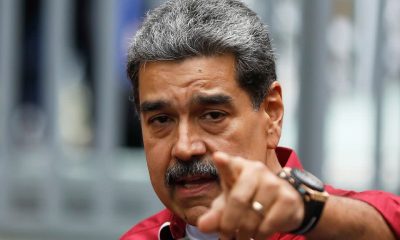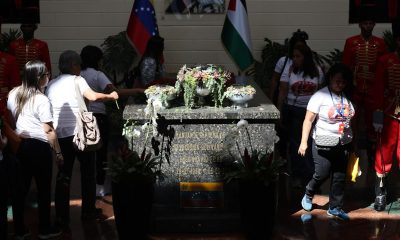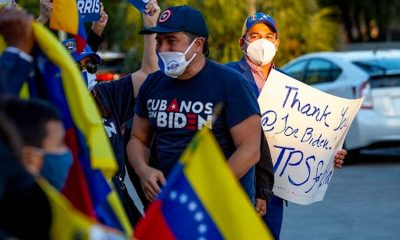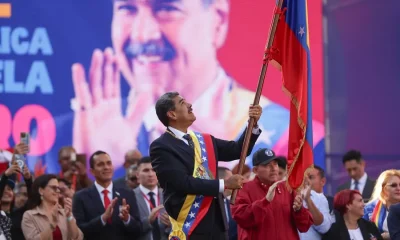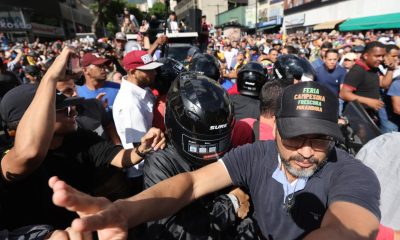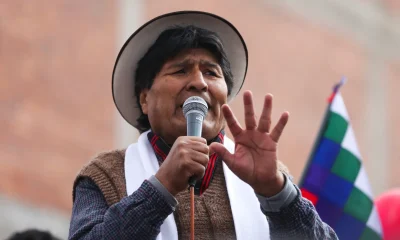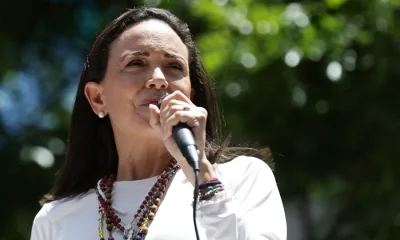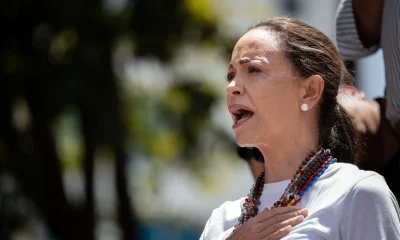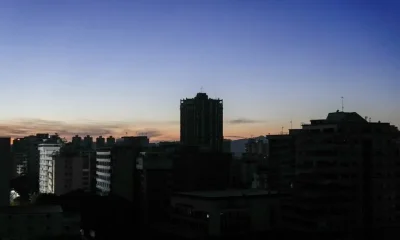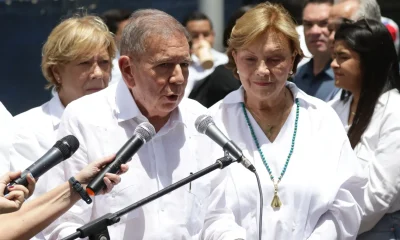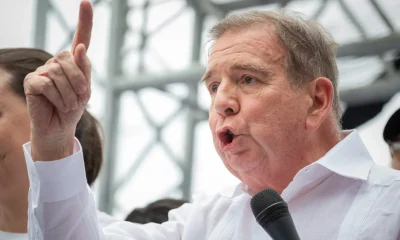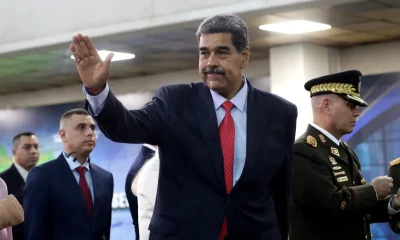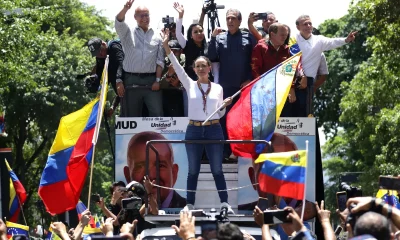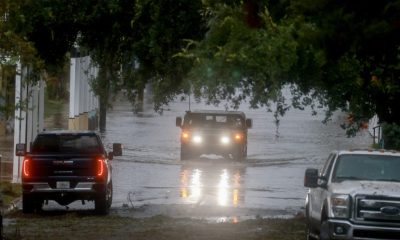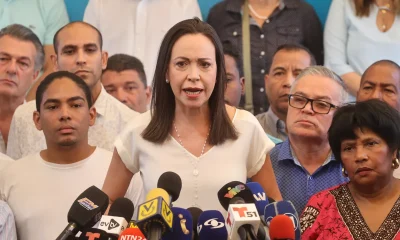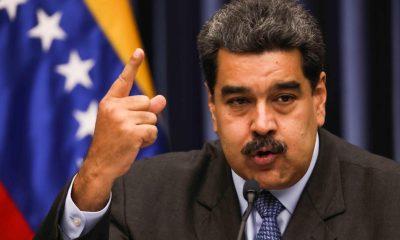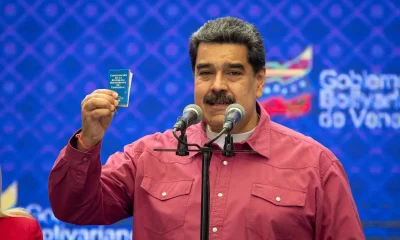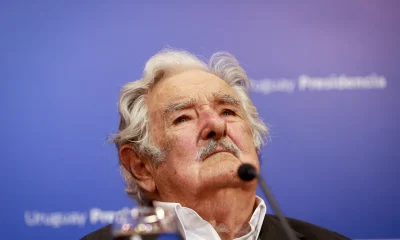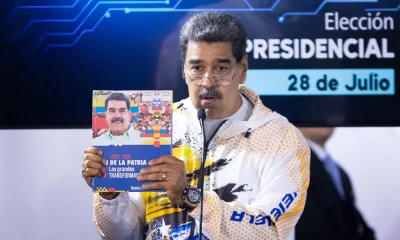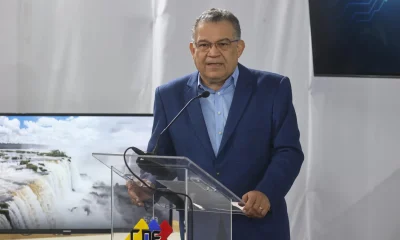International
Maduro ‘100 % defeatable’ says head of Venezuela opposition
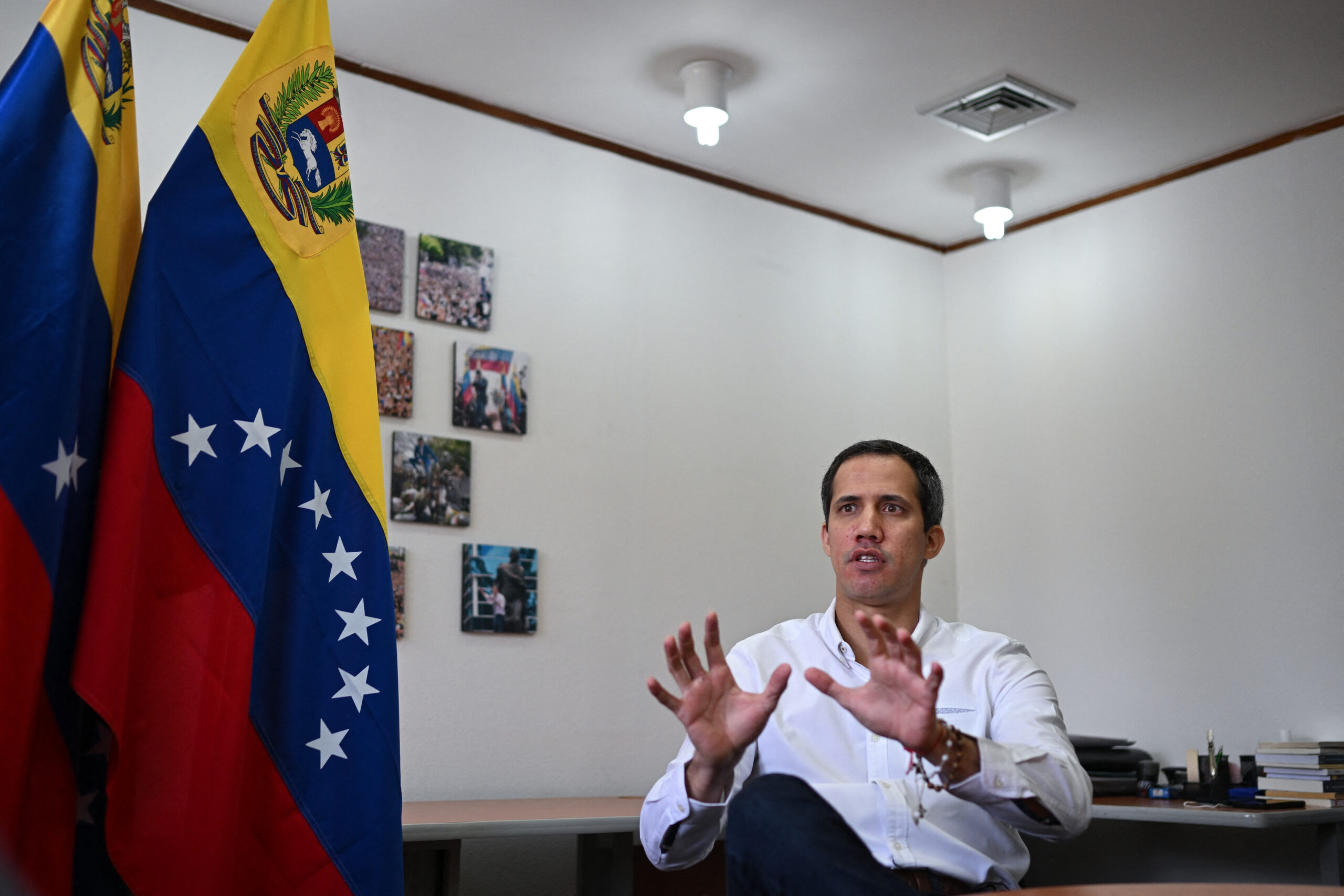
January 10 | By AFP | Patrick Fort / Esteban Rojas |
With the end of his symbolic interim government, which Juan Guaido hoped would push President Nicolas Maduro from power, the opposition leader is now proposing primary elections to reunify a fractured opposition, insisting that Maduro is “defeatable”.
“The problem we have today is to reunify the democratic alternative. Once the democratic alternative is reunited, Maduro is 100 percent defeatable,” the 39-year-old said Monday in an interview with AFP in Caracas, ahead of presidential elections slated for 2024.
Guaido, who is the target of numerous judicial processes in his country, hopes the primaries can take place in the first half of this year.
Riven by divisions, the opposition itself has recently eliminated the “interim government” that in January 2019 had been recognized by the United States and fifty other countries due to challenges to Maduro’s re-election a year earlier.
– Are you disappointed with the old allies who withdrew support for the “interim government”? –
“We are focused on what we have demanded from early on: free elections, a presidential election that we have been owed since 2018, and the pending task is to reunify the democratic alternative, which is the majority.”
“More than disappointed, I think that today as Venezuelans we feel disgust, not with our allies, but with everyone’s behavior … More than disappointed in one, two or three people, more than that, I share the feeling of disgust for what is currently happening in Venezuelan politics, which must transcend partisan interests and continue fighting for the common good… I assume my share of responsibility.”
“There is a process of restructuring, of reconstruction (…) and I believe that we also have the opportunity around the corner, which is the primary election (…) We must get ready immediately.”
– How did the progressive loss of international support, together with the shift to the left of several Latin American countries, affect you? –
“Getting close to Maduro is a mistake (…). Yes, certainly an Alberto Fernandez (president of Argentina) getting close to Venezuela clearly weakened the position of the interim government. Much better a country solidly denouncing a dictatorship than relativizing it, the same with the president (Gustavo) Petro (in Colombia), the same with (Andres Manuel) Lopez Obrador (in Mexico)…
“The international community has great weaknesses in holding dictators to account.”
– After all the divisions, can the opposition win the 2024 presidential elections? –
“If there is unity, without a doubt. The problem is not Maduro, or rather, the problem we have today is to reunify the democratic alternative. Once the democratic alternative is reunited, Maduro is 100 percent defeatable (…). Facing the possibility of a free and fair election, Maduro is absolutely weak, defeatable”.
– Is the opposition losing strength in the negotiations that resumed with Maduro delegates last November in Mexico? –
“(Eliminating the interim government) does not put us in a better position (…) but we are ready for an agreement that has to do with electoral conditions to make an election a political solution to the conflict we are experiencing in Venezuela.”
– Will you be a candidate in possible primaries? –
“My candidate is the union. My candidate, then, is the primary and when we have primaries, when we have a schedule, I will make a decision (…). Today all of us (the main opposition leaders) are incapacitated, imprisoned or in exile. So a lot will have to do with how Mexico evolves and how the possibility of a competitive primary and a free, fair and competitive (presidential) election evolves.”
International
U.S. Senate Rejects Budget, Bringing Government Closer to Shutdown Amid DHS Dispute

The U.S. Senate voted on Thursday against a budget proposal in a move aimed at pressuring changes at the Department of Homeland Security (DHS), following the killing of two civilians during a deployment of immigration agents in Minneapolis.
All Senate Democrats and seven Republican lawmakers voted against the bill, which requires 60 votes to advance, pushing the country closer to a partial government shutdown that would cut funding for several agencies, including the Pentagon and the Department of Health.
The rejection came as Senate leaders and the White House continue negotiations on a separate funding package for DHS that would allow reforms to the agency. Proposed measures include banning Immigration and Customs Enforcement (ICE) agents from wearing face coverings and requiring them to use body-worn cameras during operations.
The vote took place just hours after President Donald Trump said he was “close” to reaching an agreement with Democrats and did not believe the federal government would face another shutdown, following last year’s record stoppage.
“I don’t think the Democrats want a shutdown either, so we’ll work in a bipartisan way to avoid it. Hopefully, there will be no government shutdown. We’re working on that right now,” Trump said during a Cabinet meeting at the White House.
International
Trump Says Putin Agreed to One-Week Halt in Attacks on Ukraine Amid Extreme Cold

U.S. President Donald Trump said on Thursday that he secured a commitment from Russian President Vladimir Putinto halt attacks against Ukraine for one week, citing extreme weather conditions affecting the region.
“Because of the extreme cold (…) I personally asked Putin not to attack Kyiv or other cities and towns for a week. And he agreed. He was very pleasant,” Trump said during a Cabinet meeting broadcast by the White House.
Trump acknowledged that several advisers had questioned the decision to make the call.
“A lot of people told me not to waste the call because they wouldn’t agree. And he accepted. And we’re very happy they did, because they don’t need missiles hitting their towns and cities,” the president said.
According to Trump, Ukrainian authorities reacted with surprise to the announcement but welcomed the possibility of a temporary ceasefire.
“It’s extraordinarily cold, record cold (…) They say they’ve never experienced cold like this,” he added.
Ukrainian President Volodymyr Zelensky later commented on the announcement, expressing hope that the agreement would be honored.
International
Storm Kristin Kills Five in Portugal, Leaves Nearly 500,000 Without Power

Storm Kristin, which battered Portugal with heavy rain and strong winds early Wednesday, has left at least five people dead, while nearly half a million residents remained without electricity as of Thursday, according to updated figures from authorities.
The revised death toll was confirmed to AFP by a spokesperson for the National Emergency and Civil Protection Authority (ANPEC). On Wednesday, the agency had reported four fatalities.
Meanwhile, E-Redes, the country’s electricity distribution network operator, said that around 450,000 customers were still without power, particularly in central Portugal.
Emergency services responded to approximately 1,500 incidents between midnight and 8:00 a.m. local time on Wednesday, as the storm caused widespread disruptions.
The Portuguese government described Kristin as an “extreme weather event” that inflicted significant damage across several regions of the country. At the height of the storm, as many as 850,000 households and institutions lost electricity during the early hours of Wednesday.
Several municipalities ordered the closure of schools, many of which remained shut on Thursday due to ongoing adverse conditions.
Ricardo Costa, regional deputy commander of the Leiria Fire Brigade, said residents continue to seek assistance as rainfall persists.
“Even though the rain is not extremely intense, it is causing extensive damage to homes,” he noted.
In Figueira da Foz, a coastal city in central Portugal, strong winds toppled a giant Ferris wheel, underscoring the severity of the storm.
-

 Central America5 days ago
Central America5 days agoGuatemala Police Arrest Prison Guard Caught in the Act of Extortion
-

 Central America5 days ago
Central America5 days agoHonduras swears in conservative president Asfura after disputed election
-

 Central America5 days ago
Central America5 days agoBukele leads public trust rankings as UCA survey highlights gains in security
-

 International3 days ago
International3 days agoFootball Fan Killed in Clashes After Colombian League Match
-

 Central America3 days ago
Central America3 days agoGuatemala President Says Starlink Terminal Found Inside Prison
-

 International5 days ago
International5 days agoDoomsday clock moves to 85 seconds before midnight amid rising global risks
-

 International5 days ago
International5 days agoWinter Storm Fern Leaves 30 Dead and Over One Million Without Power Across the U.S.
-

 International2 days ago
International2 days agoU.S. Senate Rejects Budget, Bringing Government Closer to Shutdown Amid DHS Dispute
-

 Sin categoría5 days ago
Sin categoría5 days agoEight Killed in Series of Armed Attacks in Ecuador’s Manabí Province
-

 International5 days ago
International5 days agoSpain approves plan to regularize up to 500,000 migrants in Historic Shift
-

 International3 days ago
International3 days agoMissing Spanish Sailor Rescued After 11 Days Adrift in Mediterranean
-

 International3 days ago
International3 days agoRubio Says U.S. Could Participate in Follow-Up Russia-Ukraine Talks
-

 Sin categoría5 days ago
Sin categoría5 days agoEl Salvador Launches Fourth Year of Ocean Mission to Protect Marine Ecosystems
-

 Central America1 day ago
Central America1 day agoPanama Supreme Court Strikes Down Panama Ports Concession as Unconstitutional
-

 International2 days ago
International2 days agoStorm Kristin Kills Five in Portugal, Leaves Nearly 500,000 Without Power
-

 Central America1 day ago
Central America1 day agoU.S. and Guatemala Sign Trade Deal Granting Zero Tariffs to Most Exports
-

 International2 days ago
International2 days agoTrump Says Putin Agreed to One-Week Halt in Attacks on Ukraine Amid Extreme Cold
-

 International2 days ago
International2 days agoMan Arrested After Vehicle Crashes Into Jewish Institution in Brooklyn



























